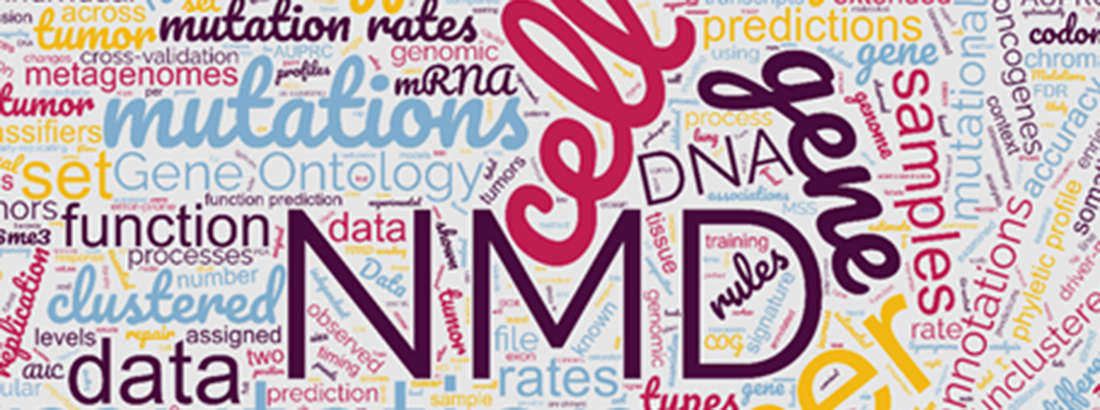Supek Group

We perform large-scale bioinformatic studies of multi-omic data from human tumors (somatic mutations, epigenomes and transcriptomes), human populations (germline variation) and metagenomes (incl. human microbiomes).
We study mechanisms of maintaining genome stability in human cells via statistical analyses of mutation patterns in cancer, which often result from deficient DNA repair.
Next, we are interested in how mRNA synthesis and turnover pathways shape genomes and transcriptomes in health and disease.
Finally, we combine experimental work and genomics to scan cancer genomes for genetic interactions to predict tumor evolution and identify novel synthetic lethalities.
More generally, we study use machine learning approaches to infer gene function from massive genomic data.
- The rules of the nonsense-mediated mRNA decay (NMD) QC pathway were elucidated, and their importance to genetic disease, tumor evolution and immunotherapy was assesed.
- Mutational signatures of endogenous mutagens APOBEC3A and TLS polymerases were clarified, and mechanisms that promote clustered mutations in cancer revealed.
- By using cell lines as a model, cancer cell vulnerabilities that result as a consequence of some types of disturbed DNA repair and/or mutagenesis were identified.
- Links between local chromatin environment and the cell’s response to DNA damage (incl. during gene editing) and activity of DNA repair were elucidated.
[1] Genomics of DNA repair
We aim to understand mechanisms of maintaining genome integrity in human cells via statistical analyses of mutation patterns in cancer.
[2] mRNA quality control
We are interested in how the pathways dealing with synthesis and turnover of messenger RNAs shape genomes and transcriptomes, in health and disease.
[3] predicting cancer evolution
Combining experiment and genomics, we scan cancer genomes for causal genes and for genetic interactions to better understand tumor evolution.
[4] bioinformatics of gene function
From coli to human genome, the function of a substantial fraction of the genes is unknown; we think that machine learning approaches can help solve this.
Selected publications
- DiffInvex identifies evolutionary shifts in driver gene repertoires during tumorigenesis and chemotherapy. A Khalil, F Supek. 2025. Nature Communications.
- Cell cycle gene alterations associate with a redistribution of mutation risk across chromosomal domains in human cancers. 2024. M Salvadores, F Supek. Nature Cancer.
- Copy number losses of oncogenes and gains of tumor suppressor genes generate common driver mutations. E Besedina, F Supek. 2024. Nature Communications.
- Mutational signatures are markers of drug sensitivity of cancer cells. J Levatić, M Salvadores, F Fuster-Tormo, F Supek. 2022. Nature Communications 13 (1), 2926
- TP53-dependent toxicity of CRISPR/Cas9 cuts is differential across genomic loci and can confound genetic screening. MM Álvarez, J Biayna, F Supek. Nature communications 13 (1), 4520
- The impact of rare germline variants on human somatic mutation processes. M Vali-Pour et al. 2022. Nature Communications 13 (1), 3724
- DNA mismatch repair promotes APOBEC3-mediated diffuse hypermutation in human cancers. D Mas-Ponte, F Supek. Nature genetics 52 (9), 958-968
- Matching cell lines with cancer type and subtype of origin via mutational, epigenomic, and transcriptomic patterns. M Salvadores, F Fuster-Tormo, F Supek. 2020. Science Advances 6 (27), eaba1862
- The impact of nonsense-mediated mRNA decay on genetic disease, gene editing and cancer immunotherapy. RGH Lindeboom et al. Nature genetics 51 (11), 1645-1651

